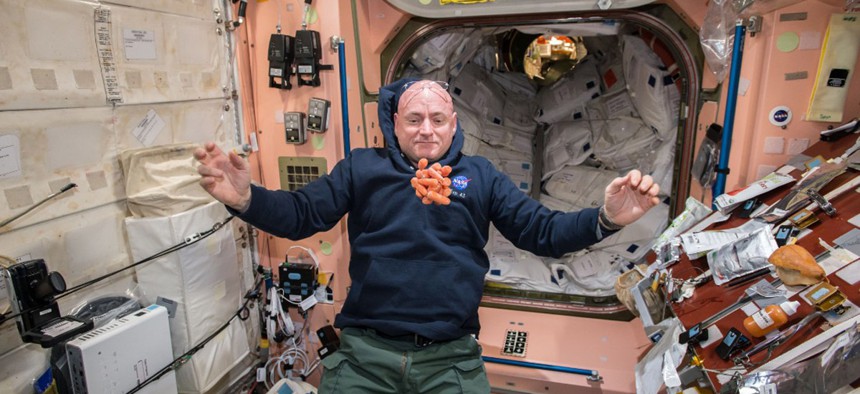Video: What Does Gut Bacteria Have to Do With Space Travel?

Astronaut Scott Kelly aboard the International Space Station. NASA
Potentially a lot.
There's a lot of things NASA has to study before it's planned, manned mission to Mars in the 2030s. Astronaut Scott Kelly's famous year spent in space provided a jumping off point for a lot of research on how the human body functions in low gravity, high radiation environments for a long period of time.
One such topic of research: gut bacteria. The human body has about three pounds of bacteria in the gut, and the composition of that bacteria is directly tied to the health of that body. And now Dr. Fred Turek of Northwestern University’s Center for Sleep and Circadian Biology is in charge of studying Kelly's microbiome.
If there aren't any major changes, that's a good sign that a years-long journey to Mars isn't going to cause any (major) stomach problems for the astronauts.
"But if we find there's certain bacteria that are out-competing other bacteria in the zero-gravity, radiation environment, well we've got to perhaps come up with countermeasures then," said Turek.
To learn more, check out the video below from NASA:






